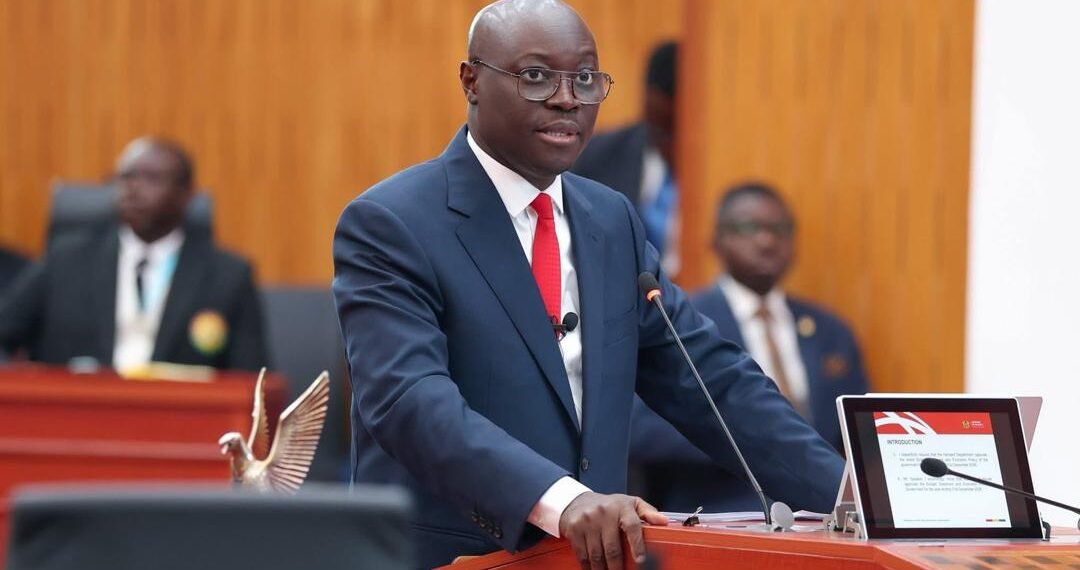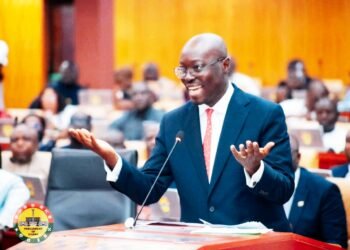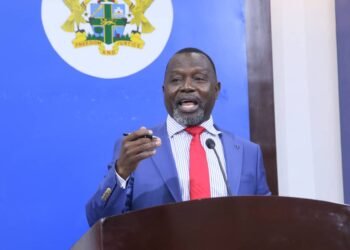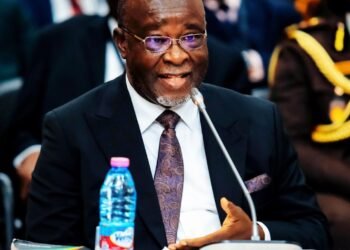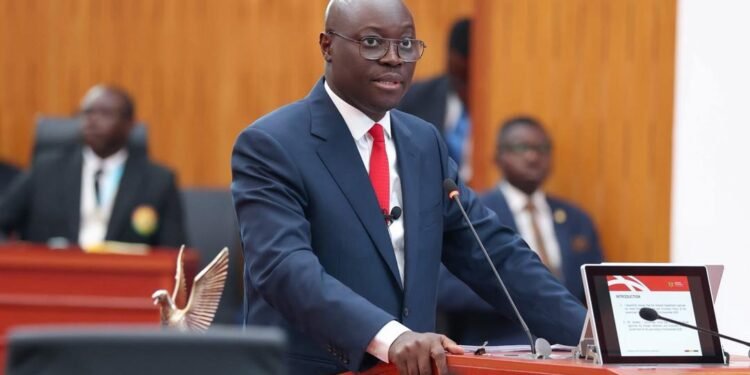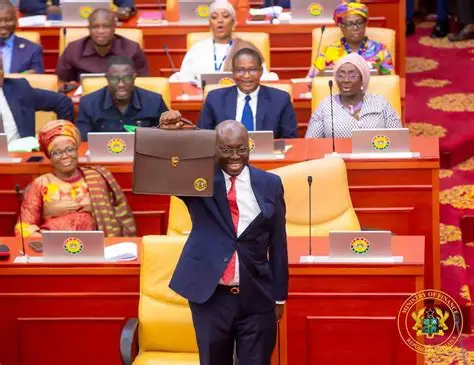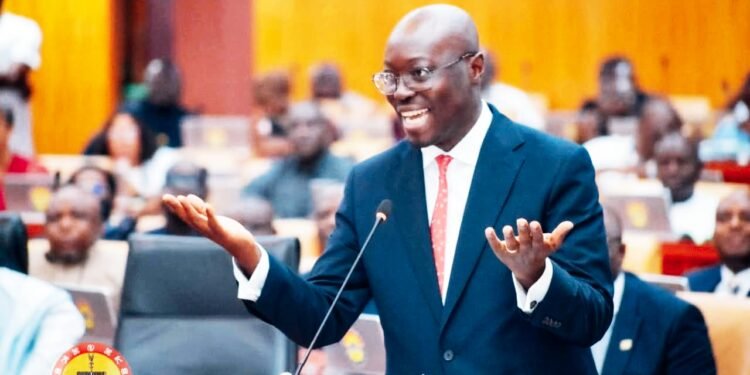Ghana’s Minister for Finance, Dr. Cassiel Ato Forson, has revealed that the government has successfully completed an independent audit of arrears amounting to GH¢68.8 billion, leading to the validation of GH¢47.8 billion in legitimate claims and the rejection of GH¢10.4 billion in fraudulent or unsupported claims.
The audit, which was undertaken by the Auditor-General in collaboration with global accounting firms PwC and EY, was part of efforts by the government to safeguard the public purse and strengthen fiscal discipline.
Presenting the 2026 Budget to Parliament, Dr. Ato Forson said that upon assuming office, the government inherited a significant arrears burden consisting of GH¢50.5 billion in unpaid invoices and interim payment certificates (IPCs) and GH¢18.3 billion in outstanding Bank Transfer Advices (BTAs).
“Mr. Speaker, upon assuming office, the government was confronted with outstanding arrears and payables totalling GH¢68.8 billion. Mr. Speaker, as I informed this august House during the Mid-Year Review of the 2025 Budget, this special audit covered all verified arrears and commitments as at end-2024
Ghana’s Minister for Finance, Dr. Cassiel Ato Forson
To ensure accountability and protect the state from potential financial losses, the government commissioned a special audit to verify the legitimacy of all outstanding claims and commitments as of the end of 2024.
According to Dr. Ato Forson, the exercise was intended to establish the legitimacy of the claims, identify irregularities, and address the fiscal risks arising from the accumulation of arrears and outstanding commitments. He explained that this audit was in fulfilment of the government’s pledge to ensure value for money and transparency in public financial management.
“The Auditor-General, working jointly with PwC and EY, conducted an independent validation of these arrears and commitments. That exercise has now been completed, and the Auditor-General is finalising the report for submission to Parliament.”
Ghana’s Minister for Finance, Dr. Cassiel Ato Forson
Audit Outcome
Detailing the outcome of the audit, the Finance Minister said that of the GH¢68.8 billion payables submitted for review, GH¢47.8 billion was confirmed as legitimate claims, while GH¢10.4 billion was rejected.

The rejected claims, he explained, were disqualified due to unsupported documentation, duplicate and recycled IPCs, inflated invoices, falsified stores receipts, and instances of no work done.
Dr. Ato Forson revealed that within the rejected amount was GH¢1 billion in Bank Transfer Advices that had already been approved and were ready for payment. “Without this audit, those funds would have been disbursed, underscoring the importance of vigilance and verification,” he told the House.
In addition, GH¢2 billion was reclassified from claims and BTAs to commitments, while a further GH¢8.6 billion remains under review pending additional validation. The Minister explained that these yet-to-be-verified claims are being scrutinised due to inadequate documentation, missing third-party confirmations, and the absence of supporting contracts.
“These claims may exist in part, but further evidence will be required before they can be recognised as legitimate obligations of the State”.
Ghana’s Minister for Finance, Dr. Cassiel Ato Forson,
Describing the audit findings as both “troubling and damning,” Dr. Ato Forson said the exercise had exposed deep-rooted weaknesses in the management of public finances and contract administration. He, however, emphasised that the process had also reaffirmed the government’s resolve to restore accountability and discipline in the use of public resources.
“This audit has not only saved the nation billions in potential losses but also restored accountability, strengthened expenditure controls, and reaffirmed this Government’s unwavering commitment to fiscal discipline and transparency”.
Ghana’s Minister for Finance, Dr. Cassiel Ato Forson,
Exclusion of GH¢10.36 billion from the 2024 Fiscal Framework
The Minister added that the Ministry of Finance has already excluded the rejected GH¢10.36 billion from the 2024 fiscal framework to ensure that the state’s financial reporting remains credible and consistent with verified obligations.

“Mr. Speaker, since GH¢10.36 billion out of the GH¢68.76 billion arrears has been rejected by the Auditor-General, the Ministry of Finance has excluded that amount from the 2024 fiscal framework”.
Ghana’s Minister for Finance, Dr. Cassiel Ato Forson,
The audit outcome is an important step toward curbing systemic leakages in the management of public funds as the rigorous verification process, led by both the Auditor-General and independent auditors, has demonstrated the government’s seriousness about financial accountability.
The exclusion of unverified claims from the fiscal framework will help prevent artificial inflation of expenditure figures and improve Ghana’s fiscal credibility with development partners and investors.
The findings also underscore the magnitude of financial irregularities that have plagued the public sector over the years. Many governance experts have long warned that weak procurement controls, political patronage, and opaque contracting processes have contributed to the accumulation of questionable arrears.
The revelation that billions of cedis in claims lacked basic documentation or involved no work done is likely to prompt renewed calls for accountability from contractors and officials involved in past transactions.

Dr. Ato Forson used the occasion to reaffirm the government’s broader commitment to fiscal consolidation and public sector reform. He reiterated that his administration is determined to ensure that every cedi spent delivers value for the Ghanaian taxpayer.
As the Auditor-General finalises the full report for submission to Parliament, expectations are high that further details will shed light on the specific ministries, departments, and agencies implicated in the rejected and pending claims.
The outcome of the audit is also expected to inform future government policy on arrears management and contract validation processes. Dr. Ato Forson concluded by assuring Ghanaians that the lessons drawn from the audit would guide future reforms in financial governance.
READ ALSO: 2026 Budget Targets Growth, Jobs, and Economic Transformation

